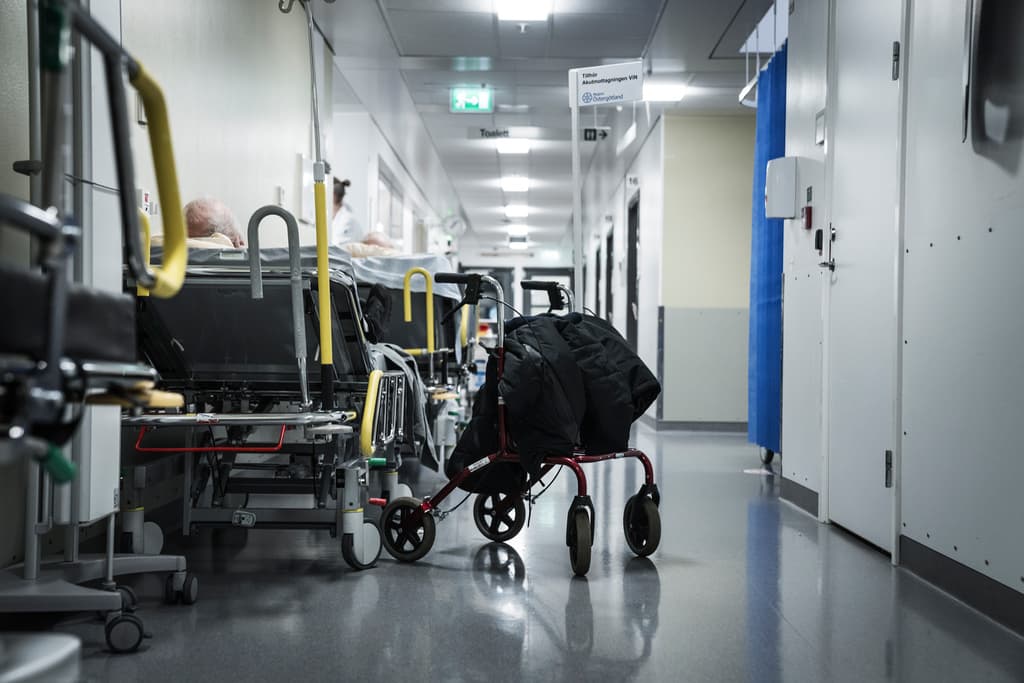The shortage of hospital beds is so severe that patients are suffering serious harm and dying, the Health and Social Care Inspectorate (Ivo) concluded in January 2023.
A year and a half later, the situation at emergency hospitals remains largely unchanged.
A comprehensive inspection was launched by Ivo in January 2022 at 27 of the country's emergency hospitals. The background was a long-standing national situation with staffing and bed shortages, and the patient safety risks this entailed.
In a partial report a year later, all hospitals were criticised for lacking staff and beds. The conditions for ensuring patient safety were deemed poor.
Half of the hospitals reported that they were forced to send home patients from the emergency department every week who should have been admitted. Just as many reported that they were unable to administer medication on time.
It also happened that patients were left lying in their own faeces and urine for hours, and that the congestion led to deaths.
Unchanged Situation
After another year and a half of inspection, the conclusion is that healthcare staff are making extensive efforts to minimise risks – but not much has changed.
Most of the problems persist. The occupancy rate remains above 95 per cent, and there are still patients lying in corridors without proper supervision and the ability to call for help, says Peder Carlsson, department head at Ivo.
Several healthcare providers have indeed taken measures that can have an effect in the long run, but few have, according to Ivo, managed to eliminate the immediate and serious shortcomings.
The measures need to be taken both now and in the long run to solve the situation. The shortcomings cannot persist for several years, for then the risks will remain high, ultimately affecting patients.
10 out of 27
The inspection has been completed at 17 of the 27 examined hospitals, despite persistent shortcomings. At ten hospitals, the shortcomings are deemed so severe that the inspection must continue.
Could it become necessary to close emergency departments?
We need our emergency hospitals, so banning or closing an emergency department is not currently an option, but we have made other tough decisions to ensure patient safety. The legislation gives Ivo both the opportunity and the obligation to prohibit patient-endangering care.
How is healthcare as a whole doing?
We have a very good healthcare system in Sweden in many ways. But it has been strained for a long time, and this threatens patient safety or causes patients not to receive care on time. The fundamental problems in emergency care are serious and must be addressed.
The Health and Social Care Inspectorate has been examining emergency care at 27 hospitals across the country for over two years.
In January 2023, a number of patient safety deficiencies were identified, which, according to Ivo's latest report, still persist. These include:
Patients being cared for in corridors for long periods without access to food, water, or assistance with toilet visits.
Patients being equipped with alarm bells and buzzers to call for staff attention.
Medication not being administered at all or not on time.
Medical monitoring not being based on patients' medical needs but on available equipment and staff.
At four hospitals – Akademiska Hospital, Sunderby Hospital, Sundsvall Hospital, and Centrallasarettet in Växjö – the shortcomings were deemed so severe that the hospitals were fined in 2022.
Source: Health and Social Care Inspectorate






